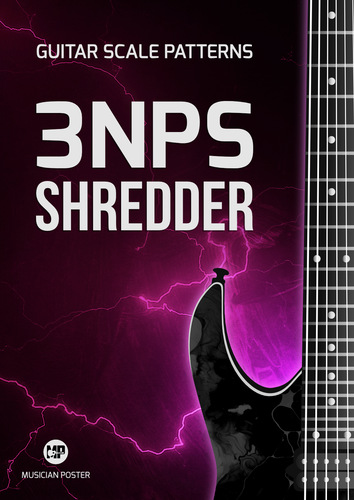Charts to help you learn the CAGED system and its 5 patterns for guitar.
Each of the 5 shapes will produce a full Major scale when you play it. The numbers inside the circles and squares represent intervals (scale degrees relative to the major scale). Root tones have a stronger visual emphasis to provide soloing landmarks and a better overview of the shape's primary "anchor points" to help you memorize and internalize all 5 patterns. One of the diagrams additionally highlights all root triad's chord tones to help you target them when soloing. All diagrams are isolated from one another to let you focus on just a single pattern at a time.
Pro tip: since these diagrams have intervals instead of specific note names you can view this chart as a recipe for any major scale. The patterns will be identical for all major keys. For example, to get CAGED patterns for the G-Major scale you just need to align the E-shape's (pattern 1) root tone on the 3rd fret of the lowest 6th string. CAGED patterns are always ordered as the CAGED-word is spelled. So for our G-Major example the next shape towards the guitar's bridge would be D-shape, and the previous shape towards the guitar's nut would be the G-shape.
One of the great benefits of being mindful of intervals when you are playing is that instead of hitting random notes that are simply "within" the scale you target specific tones of the scale (or chord) at a specific time that add a certain color (or flavor) to your playing, e.g. more consonant, or less consonant. That is only possible if you are aware of what relative degree you are playing and what effect each of its intervals has to the underlying harmony. And this is exactly what these diagrams can help you with.















0 Comments